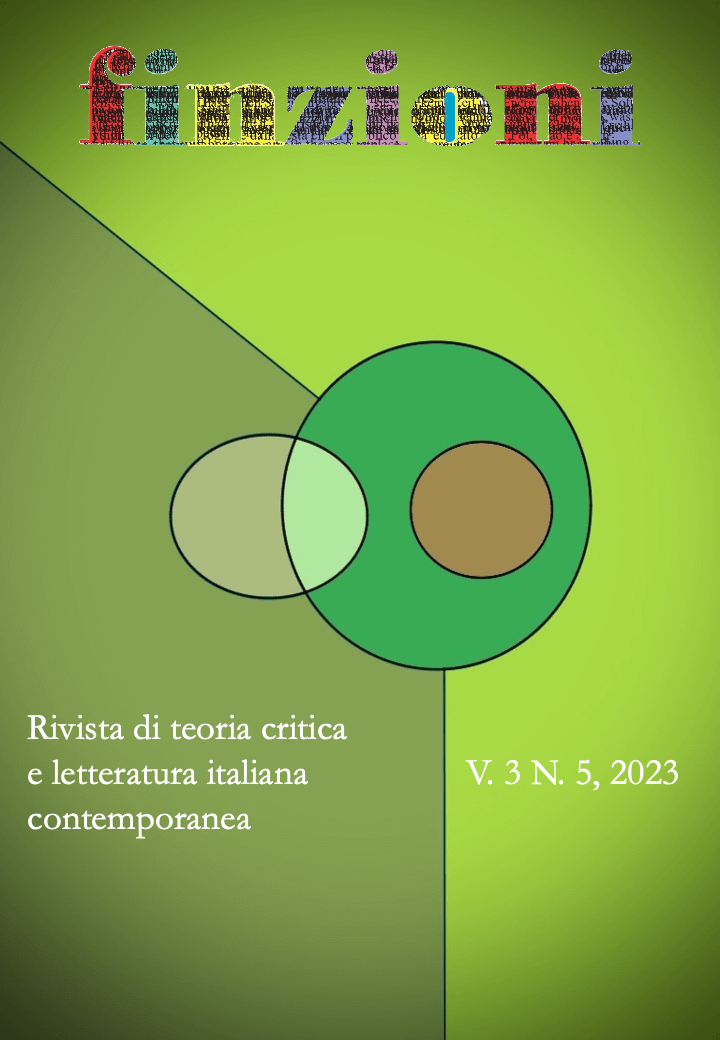The happening of an uninterrupted coitus: Pasolini’s “Petrolio/Vas”
DOI:
https://doi.org/10.6092/issn.2785-2288/17976Keywords:
Horace, Mario Soldati, Mircea Eliade, Norman O. Brown, Sándor FerencziAbstract
This essay interprets Pier Paolo Pasolini’s Petrolio as a literary organism endowed with genital characteristics to the extent that it simultaneously becomes a virtual ‘body-text’ capable of penetrating and being penetrated. It is at once penis, vagina and uterine vessel in which to regress by swimming like a fish or, more precisely, like a mermaid. Indeed, the work «desinit in piscem» (Horace’s expression here meant in a psychoanalytical key), implying an ambiguous erotic game with the reader, co-protagonist of an uninterrupted coitus with the sexualized text and, consequently, with the author. To create his performance, Pasolini assimilates and applies some theoretical foundations deduced from Freudian psychoanalysis, Sándor Ferenczi’s bioanalytic research and Norman O. Brown’s philosophy, especially as regards the ‘thalassal regression’ and the ‘stickiness of the libido’ (concept that Pasolini uses in his review to Mario Soldati’s Lo smeraldo), to which is added the identification of the author with the deus otiosus referred to by Mircea Eliade in Le sacré et le profane and Aspects du mythe.
Downloads
Published
How to Cite
Issue
Section
License
Copyright (c) 2023 Francesco Gallina

This work is licensed under a Creative Commons Attribution-ShareAlike 4.0 International License.





